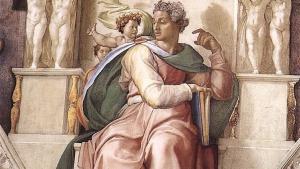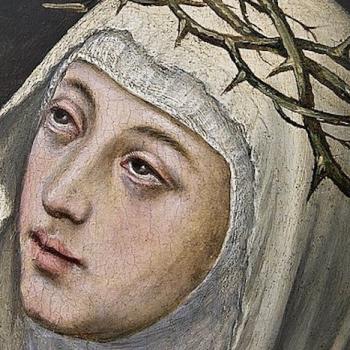
In Isaiah, we learn that God’s mighty acts of liberation are a non-identical repetition of an old pattern. The Exodus story is the only story there is, even if it gets told in new ways.
Isaiah’s Complex Setting
The writings of this prophet are, to put it mildly, difficult. This is largely due to the complexity of the politics in and about which Isaiah prophecies. Assyria lays seige to and ultimately overwhelms the Northern Kingdom (Israel). Egypt waxes and wanes as a rival power to the Assyrians. Meanwile the Southern Kingdom’s (Judah’s) great kings, Uzziah, Jothan, Ahaz and Hezekiah, try to navigate among these powerful empires. Treaties, alliances, and rebellions keep the land on constant alert. (2 Kings and 2 Chronicles tell these stories.)
In the midst of all this, Isaiah shouts, writes, and performs an unpopular message. The kings of the powerful nations are not the ultimate actors in history. Judah’s hope for survival is neither her armies nor the mercy of Tilgath-pileser of Assryia. Rather, it is the God of Moses who acts, and the God of Moses who will save.
This leads, for me, to some of the most difficult aspects of the text. Assyria’s devestation of the nations, including the Northern Kingdom, is the work of God’s wrath. Their armies are the club and the axe in God’s hands (10:15). Assyria too will eventually fall to God’s judgment, when they forget themselves and think they are the true agents. They are not. Nations rise and fall, are led into exile and annihilated, because God reigns over the earth in power and judgment. God is the principle actor, whether the received effects bring joy or sorrow.
What Isaiah Wants to Say
God causes joy and sorrow, victory and devastation alike? That’s difficult, again, to put it mildly. The questions could take us deep into the exegetical wilderness, but I’ll offer my understanding briefly. I don’t read Isaiah as a treatise on the metaphysics of causality. Not, I mean, as a text explaining the relationship of divine and human action and its effects in the world. When I want to sort those issues out, I read Thomas Aquinas and Catherine Pickstock.
Isaiah, instead, is prophesying among a people who, across a few generantions, rides a terrifying wave of threats and attacks. God, he wants them to know, is not threatened by armies nor appeased by treaties. Your experience of life- and land-threatening vulnerability to ruthless powers is not the ultimate truth of the world. Your God has not forgotten you.
God is righteous and just to such an infinite degree as to put human justice in shadow. Powerful in a way that makes Assyria’s army look like toy soldiers. God is more clever than a farmer (17:5-6) , more loving than a gardner (28:25), and wiser than a teacher (30:20-21).
Exodus, again
The temptation to turn to Egypt reminds Isaiah of an old story. The old story. Israel’s origin story as a landed people with rites and laws begins with the turn to Egypt and resulting enslavement. If they place all their trust in the care of kings and pharaohs, they will be repeating that pattern (30:1-3). It seems the way of safety; it is only the way of humiliation.
Israel is Israel, but Israel is also everyone, telling the same old boring story. We get terrified by the powers of the world. We find ourselves powerless, and so turn to those earthly powers we think can protect us. They will only ever deceive us.
But the origin story is not only the memory of enslavement. It’s also the liberation that God worked among them. Here we see God’s remarkable creativity. The day is coming when Israel’s God “will extend his hand a second time to recover the remnant that is left of his people.”
And the Lord will utterly destroy
the tongue of the sea of Egypt;
and will wave his hand over the River
with his scorching wind;
and will split it into seven channels,
and make a way to cross on foot;
so there shall be a highway from Assyria
for the remnant that is left of his people,
as there was for Israel
when they came up from the land of Egypt. (11:15-16)
If Israel can retell the boring story of panic and humiliation, God can keep telling the creative story of liberation. It won’t happen the same way as it did then. No one steps into the same river twice, said Heraclitus. But whatever the new water is that threatens, God will send the winds that will roll it back, and the people will escape from the powers that ride them down.
Notice the seven channels here. I suspect Isaiah is remembering another old story, the ultimate creative act that birthed the world in seven days. What God will do for Israel is what God has always only been doing. Bringing a beloved creation out of threat, sin, panic, and destruction, and into a salvation of quietness and trust (30:15).
The Waters at the End of the World
The ultimate crossing of the rivers will be so complete, Isaiah thinks, that even those tribes lost to the Assyrian exile will pass through and live at peace on God’s mountain (27:13). This is an event which did not happen in Isaiah’s lifetime, and indeed has not happened yet. But the prophet insists that this is how the great and final crossing of the Red Sea ends. With all gathered in peae, and no one left out.
Human faithlessness fits a predictable and boring pattern. But God’s liberating guidance comes as a creative gift that is both new and old.














